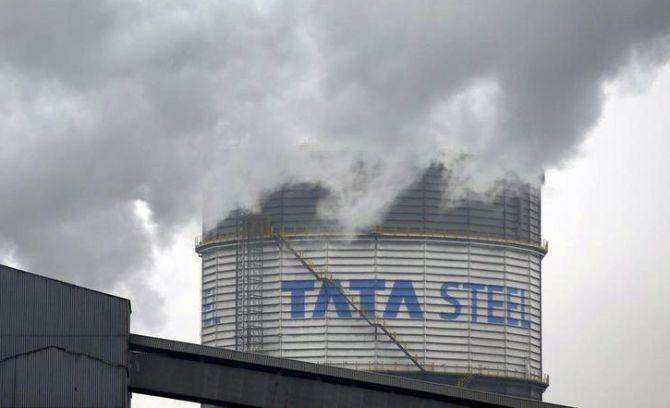Global and domestic trends in the iron and steel industry are difficult to decode. Hence, analysts’ opinion is also divided.

While the global steel prices dropped through the last year, there’s a case for claiming global prices have bottomed or are close to bottoming out.
Europe has cut steel production by 20 per cent, which has helped align supply with demand.
The US had a surprisingly strong performance in 2023.
There are hopes the EU’s demand for steel will also pick up. In India, domestic demand has been buoyed up by the infrastructure policy thrust.
China is the big question mark.
It has seen low economic activity and its massive construction and real estate sector has struggled.
However, an ongoing policy stimulus may induce a rebound.
While that would push steel demand, it would also lead to higher utilisation of China’s steel production capacity.
China holds over 50 per cent of global production capacity and when Chinese exports flood global markets, prices stay depressed.
In December, prices stayed more or less flat everywhere.
The medium-term implications for Tata Steel are very hard to estimate.
The company has a large European exposure with some of its capacity within the EU, and some in the UK.
Tata Steel is also a major domestic player in India.
Tata Steel currently has a crude steelmaking capacity of 21 million tonnes per annum (MTPA) in India making it the second-largest Indian steel manufacturer.
It could push this to around 40 MTPA with lost-cost brownfield expansions.
Phase II expansion plans are nearly completed at the Kalinganagar plant, taking capacity to 8 MTPA from 3 MTPA.
The plant also features a 6 MTPA iron ore pellet plant as well as a cold-rolled mill of 2 MTPA.
The phase II expansion of the Kalinganagar plant will end by December 2024.
This would be among the lowest-cost producers of steel globally.
Tata Steel is not only investing upstream but also investing downstream.
Upstream, the company targets an iron ore production capacity of 60-65 MTPA.
Downstream, product lines include tubes, wires, tinplate, and DI pipes with respective capacity targets of 4 MTPA, 1 MTPA, 1 MTPA, and 1 MTPA.
By 2030, Tata Steel’s India business would account for 75 per cent of total capacities compared to 62 per cent currently.
Tata Steel’s Europe business has been a drag on financials.
However, the UK government’s support for restructuring operations in the UK could enable a turnaround.
The UK high-carbon blast-furnace capacity of 3 MTPA, would be replaced by a low-carbon 3 MTPA Electric Arc Furnace plant.
However, at this moment, raw material costs (coking coal and ore prices) are outpacing steel prices, exerting downward pressure on spreads, and there’s still compression in Europe’s steel spreads and some risks of delay in UK’s restructuring.
While domestic demand remains robust, Tata Steel would have to complete expansions before it can fully exploit this.
Europe continues to run at an estimated Ebitda loss of $109 per tonne, due to the weak spreads and a maintenance shutdown in Holland.
The situation will likely improve only around H2FY25.
This has led to downgrades from some analysts while others are still recommending Buys based on the medium-term prospects and the strong domestic position.
According to Bloomberg, 7 of 11 analysts polled since December 2023 have a buy/add rating, while two each have a ‘reduce’ and neutral/equal-weight rating on the stock.
Their average one-year target price is Rs 134.82.
The stock, which hit its 52-week of Rs 142.15 on January 1, fell 3 per cent on January 3 to close at Rs 135.30 on the BSE.
Disclaimer: This article is meant for information purposes only. This article and information do not constitute a distribution, an endorsement, an investment advice, an offer to buy or sell or the solicitation of an offer to buy or sell any securities/schemes or any other financial products/investment products mentioned in this article to influence the opinion or behaviour of the investors/recipients.
Any use of the information/any investment and investment related decisions of the investors/recipients are at their sole discretion and risk. Any advice herein is made on a general basis and does not take into account the specific investment objectives of the specific person or group of persons. Opinions expressed herein are subject to change without notice.












 © 2025
© 2025